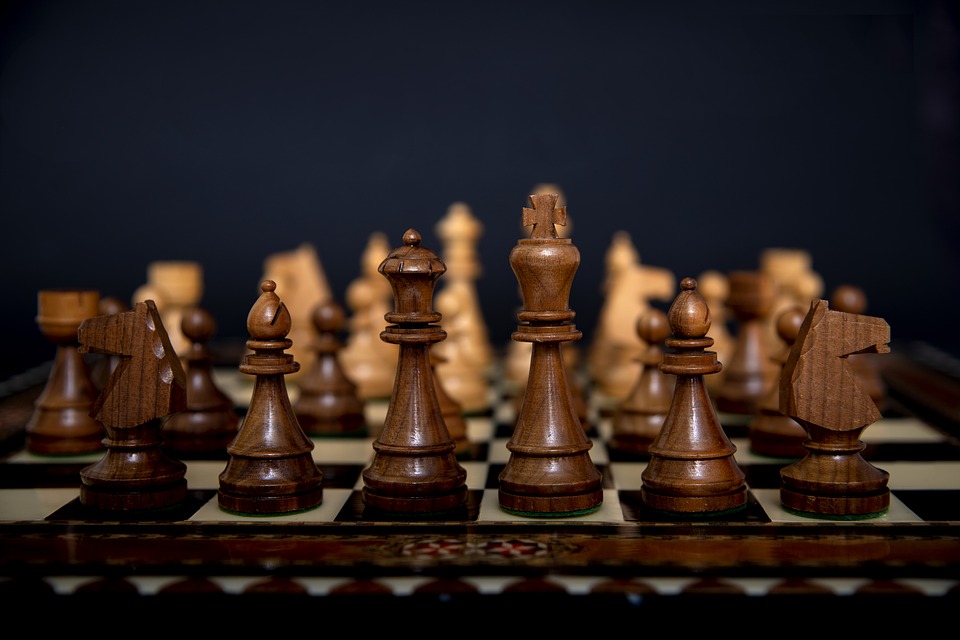Everyone is afraid of something. People may be afraid of spiders, snakes, or heights. Chess players are no exception. But their professional fears are of a different nature. In today’s article we’ll tell you about what scares beginners and experienced players.
Losing to a Weak opponent
This fear is characteristic of all chess players. Many young players perceive losing to a less skillful opponent as a disaster of universal proportions. Yes, your Elo rating is 400 points higher, and the probability of losing is only eight percent. But is eight percent really that low?
The key role in losing to a weak opponent can be played not by chess skill, but by excessive self-confidence, inflated ego, or peer pressure.
What to do in such situations? Look at defeat from an alternative point of view. Understand why you lost. Avoid repeating your mistakes. Each loss can teach you something new. Remember the old truth: What doesn’t kill us makes us stronger.
Losing an advantage
This fear is no less common among gamblers. At times it overwhelms every chess player, no matter how high his rating might be. The fear of missing out on a win can plague players with an Elo rating of 1,000, 2,000, or 3,000. Such thoughts arise in every person who knows the rules of chess.
Why does it happen? Many chess players lose concentration after gaining a material and positional advantage. Players think that victory is in their pocket. But instead of a positive outcome, a painful defeat happens.
In such situations, you should remain focused on the game. It’s not worth celebrating success before time. The game will only end when your opponent admits defeat, the time limit expires, or you checkmate. In all other situations, your hasty and inconsiderate actions may lead to a loss.
The game continues as long as your opponent is able to make moves. Don’t want to lose? Study the games of grandmasters, memorize openings, prepare for long confrontations in the middlegame and endgame. Discuss your games with your coach.
A foul in an important game
There is nothing more stressful than the game that determines the outcome of a tournament. Not only is the winner’s title on the line, but also the prize money. The burden of responsibility weighs on the player. Decision-making becomes more difficult, and there is a fear of making a mistake.
How many times during important games have you had to check and re-check your valid moves? These actions are an additional burden on the chess player’s mind, a cause of great stress. But stress does not help in achieving victory or fighting against inaccuracies. If you’re afraid of making a productive mistake, it becomes incredibly difficult to avoid it.
Fighting this fear is simple: believe in yourself and develop your counting skills. Knowing how to see a game several moves ahead comes only through practice. An extensive opening repertoire, good tactical preparation, and the absence of mental weaknesses will allow you not to commit yawns that affect the outcome of the game. Don’t be afraid of phantom mistakes – win individual games and tournaments!
Losing rating points
A common but absurd fear. One can understand FIDE ranking list leaders – loss of points can interfere with successful qualification of chess players for the Candidates Tournament. But why are online chess fans panicked by the loss of a couple dozen ranking points? This event will not have catastrophic consequences!
Most players should reconsider their attitude to the system of assigning points based on the results of games. The points in the rating list should not be considered a measure of one’s own strength. Reducing the rating indicator does not lead to a deterioration in the quality of the game. It is only the chess player’s ego and selfishness that suffer. Beginners should get rid of rating dependency at the very beginning of their career.
Lack of progress
A typical fear of beginners. Young players read chess books, study openings, play game after game, but do not see tangible progress in their skill level. The lack of correlation between the efforts made and the results achieved leads to the development of a phobia. Chess players start to think that further progress is impossible.
How do you fight this fear? Mentally. Think about it: when you go to the gym, you don’t get instant results. There is no point in going to the mirror after each exercise with a barbell – visual changes will be noticeable only with systematic training. Gradually your muscles will become more relief and you will feel the growth of physical strength. Similarly, the development of the skills of a chess player takes place. Success is not achieved after solving ten or twenty tactical problems. Solving chess puzzles every day for a month or two will allow you to make significant progress in your understanding of the game and increase your skill level.
